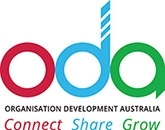Our event began with Lindsay sharing the premise on which her work is based. Lindsay believes that we all have far more capability than we realise, and that one of the great inhibitors to us fulfilling our potential is the way we communicate with each other. A contributor to this is that many of us do too much ‘telling’. We may call it ‘suggesting’, ‘advising’ or ‘recommending’ but ultimately it is all ‘telling’.
By being more skilled at asking, we can tap into, and release, more of people’s capability and potential. Lindsay shared research which has shown we have 60,000 thoughts every day, and 95% of those are the same we had yesterday. This ‘groundhog day’ of rumination is not conducive to creative thinking or change. Asking questions can help others to get unstuck from their routine thinking, and has the power to positively impact our lives.
The group applied this premise to our own experience. In breakout groups we considered the consequences of doing too much telling, and why we do more telling than asking. We identified that the consequences of too much telling minimising diversity of ideas and action, creating dependencies on perceived experts, and shutting down innovation. There are a number of factors that influence why we do more telling than asking, many of which are well-intentioned but not necessarily helpful. Sometimes this is about expediency, or expectation that we are the expert, or that we genuinely believe that we are being helpful.
To wrap up the session, we looked at practical ways we can apply this understanding. In shifting our own behaviour from telling to asking, we need to consider how we do so in a way that supports and empowers others. This includes building a bridge of understanding, by prefacing the question with what you are doing and why you are doing it. It also gives us the opportunity to learn from others insight and contributions.

